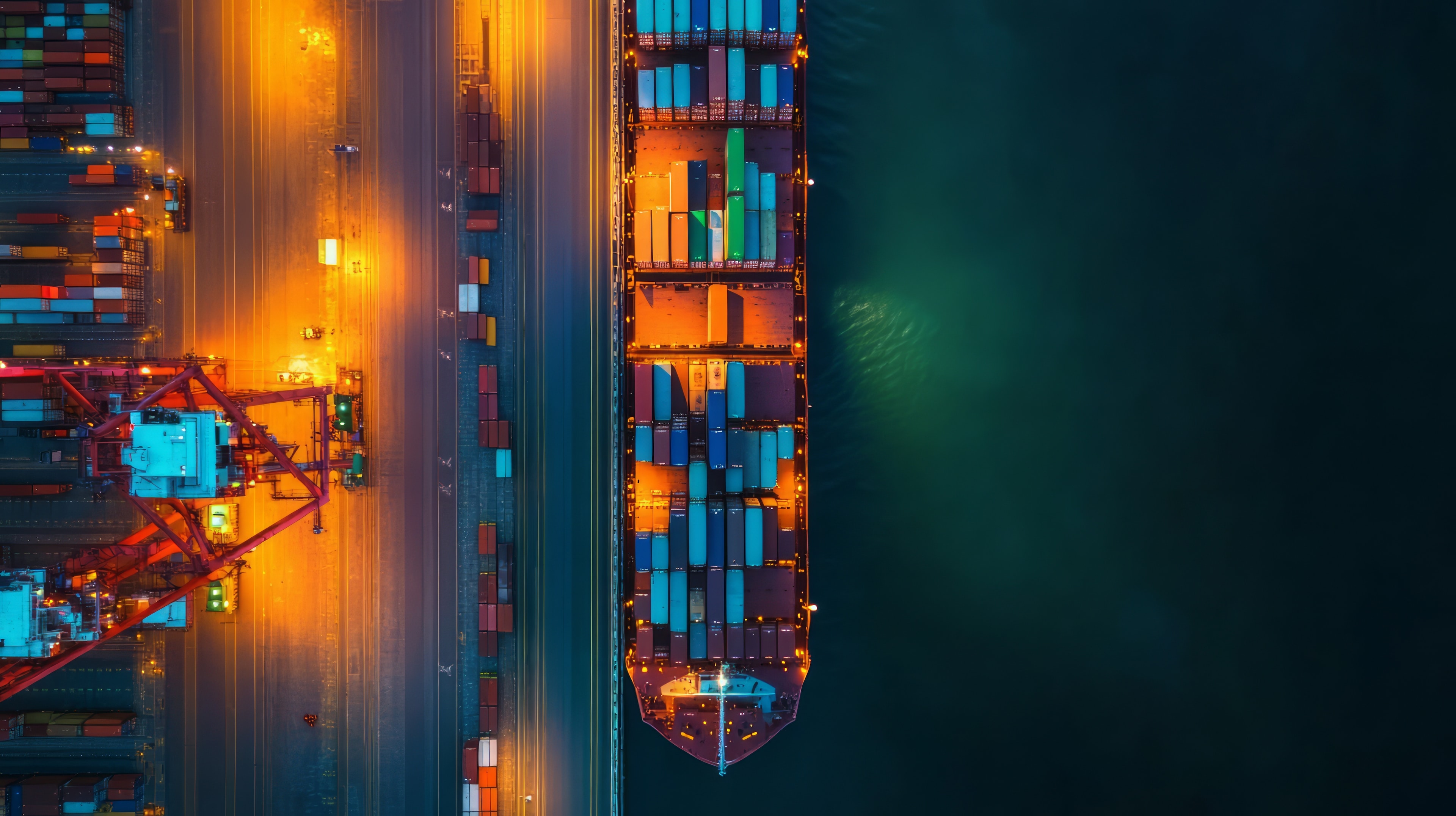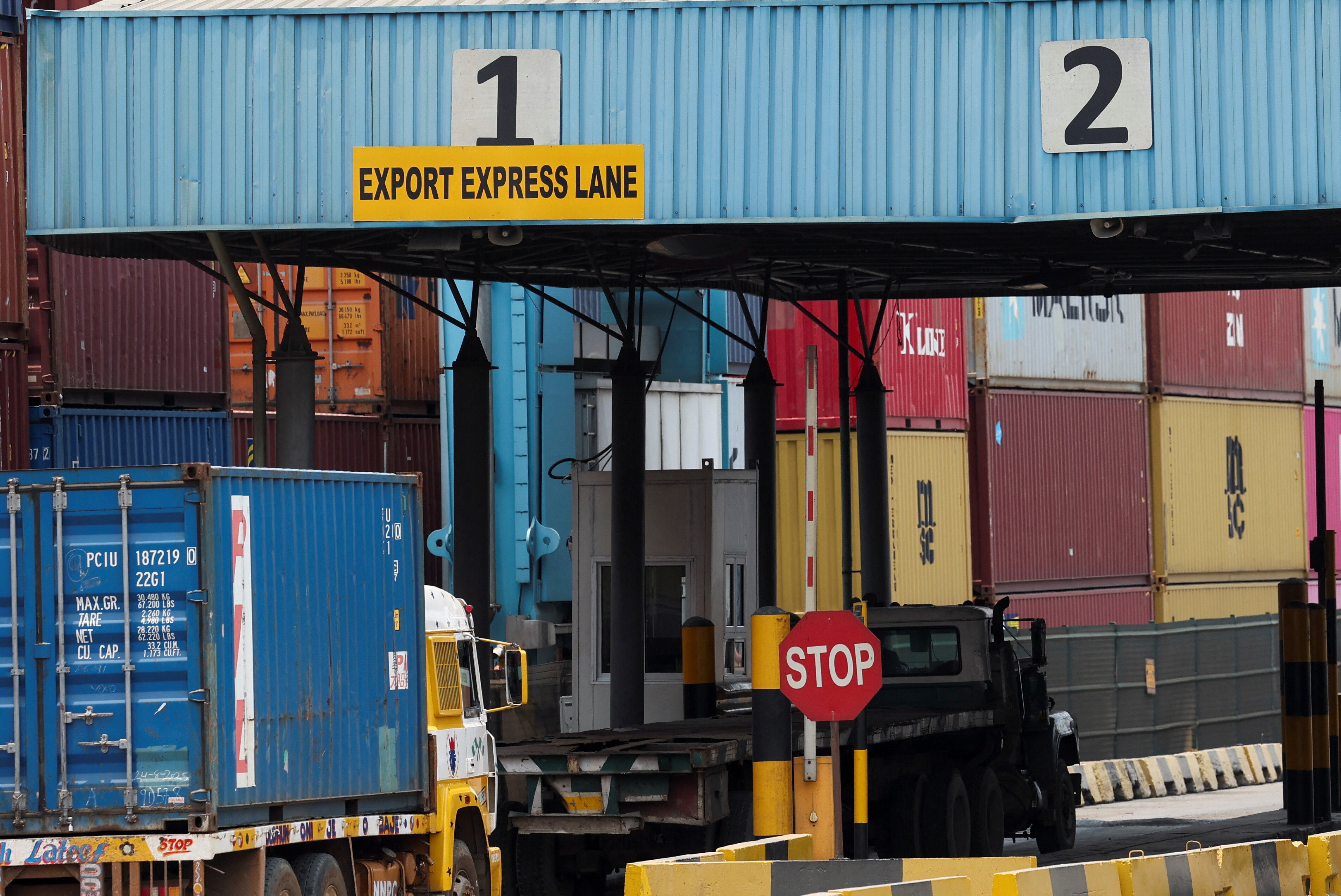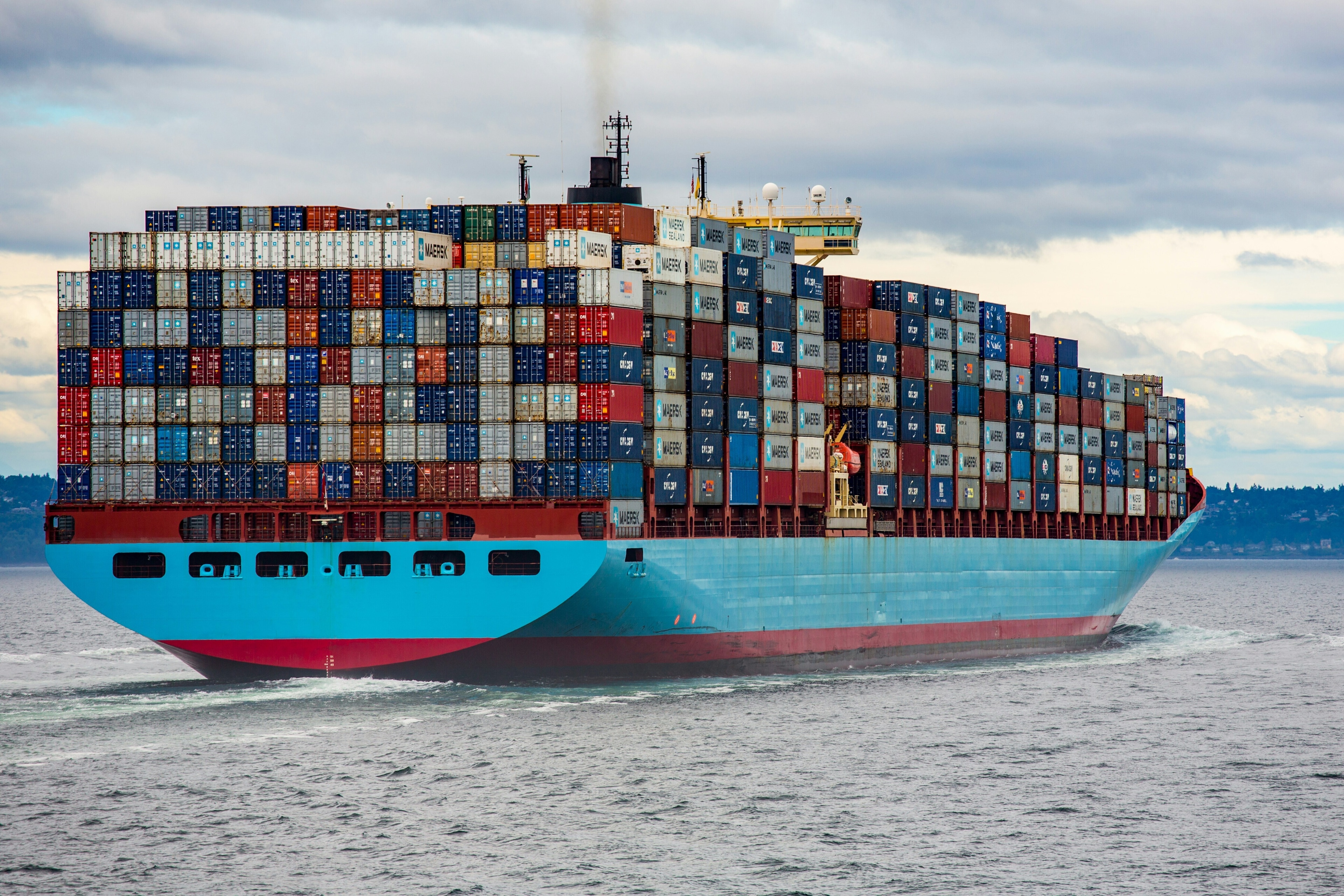International trade: What you need to know this month

Top international trade stories: WTO halves trade growth forecast for 2023; World's first carbon border tax enters into force; and more.
Image: REUTERS/Denis Balibouse
Listen to the article
- This monthly roundup brings you a selection of the latest news and updates on global trade.
- Top international trade stories: WTO halves trade growth forecast for 2023; World's first carbon border tax enters into force; Ukraine eyes end to grain trade dispute with Poland and Hungary.
1. WTO halves trade growth forecast for 2023
The World Trade Organization (WTO) has halved its growth forecast for global goods trade this year, dropping it to 0.8% from 1.7%.
"The trade slowdown appears to be broad-based, involving a large number of countries and a wide array of goods, specifically certain categories of manufactures such as iron and steel, office and telecom equipment, textiles, and clothing," the WTO says in its updated Global Trade Outlook for October 2023.

Merchandise trade volume dipped 0.5% year-on-year in January-June, but a "modest pickup" is expected in the second half of this year, the WTO says. And it sees annual goods trade growth jumping to 3.2% in 2024 – a forecast practically unchanged from its previous projection of 3.3%.
However, growth could be higher than this if inflation comes down quickly, the WTO says. On the other hand, a sharper-than-expected slowdown in China or a resurgence in inflation in advanced economies could drag on goods trade in 2024.
Signs of a trade recovery are emerging for 2024, according to global shipping company Maersk. US and European consumers are driving the bounceback and emerging markets are looking resilient, notably India, Latin America and Africa, Maersk CEO Vincent Clerc told CNBC.

WTO Director-General Ngozi Okonjo-Iweala described the trade growth slowdown this year as "a cause for concern, because of the adverse implications for the living standards of people around the world".
She added that "global economic fragmentation" – signs of which are appearing – will not help matters, and that "WTO members must seize the opportunity to strengthen the global trading framework by avoiding protectionism and fostering a more resilient and inclusive global economy".
2. World's first carbon border tax enters into force in EU
The EU brought its Carbon Border Adjustment Mechanism (CBAM) into force on 1 October. It’s designed to equalize carbon costs for producers whether inside or outside of the EU.
The CBAM will at first apply to imports of goods with particularly carbon-intensive production processes, such as cement, iron and steel, aluminium, fertilizers, electricity and hydrogen.
For now, importers only have to collect and report data on the emissions generated in producing the products they buy. But from the start of 2026, they will need to declare annual imports and their "embedded greenhouse gases", then submit sufficient CBAM certificates to cover the emissions.
The price of the certificates will depend on the weekly average auction price of EU Emissions Trading System (ETS) allowances, which is currently around €85 ($90) per tonne of CO2.
"The EU ETS assigns free allowances to certain hard-to-abate sectors, but to comply with WTO rules these need to be phased out as the CBAM is phased in," World Economic Forum Climate Trade Lead Joachim Monkelbaan explains.
The CBAM's impact will ripple along global supply chains in different ways, Boston Consulting Group says.
"High-carbon producers outside the EU will become less competitive in the EU market when the price of carbon is included in their exports," it says. "End users in the EU are likely to face higher prices and may start to look for alternative trading partners or require existing trading partners to reduce the carbon content of their products."
3. News in brief: Trade stories from around the world
Ukraine believes it can resolve a grain trade dispute with Poland and Hungary, but not until after Polish elections on 15 October. Poland, Hungary and Slovakia restricted imports of Ukrainian grain in September because of the impact on local farmers, although Slovakia and Ukraine have since agreed a licensing system for shipments. Ukraine's Black Sea grain deal with Russia collapsed in July.
A trade deal between South American bloc Mercosur and the European Union appears to be inching closer, after negotiators met in Brazil in early October to try and iron out their differences. The main sticking points are deforestation and environmental safeguards, Reuters reports. Paraguay’s President Santiago Peña says a deal must be reached by 6 December, otherwise the Mercosur countries will start negotiating with Asian countries instead.
The US and China are working to improve their economic relationship, with two new working groups put together to steer discussions, the Financial Times (FT) reports. It follows the establishment last month of a "commercial issues working group" to help resolve US-China trade differences, as we reported in our September trade roundup.
The US international trade deficit has closed to almost a three-year low thanks to strong rises in exports. The deficit stood at 9.9% – or $58.3 billion – in August as exports of goods and services rose 1.6%.
How is the World Economic Forum improving trade for more resilient societies?
The EU is considering placing tariffs on imports of Chinese electric vehicles (EVs). It says Chinese EVs are cheaper than EU-made alternatives and are benefitting from subsidies from Beijing. Brussels could also begin a probe into how subsidies have helped China's wind turbine manufacturers, the FT reports.
The UK’s Electronic Trade Documents Act has entered into force, meaning that paperless versions of documents now have the same legal validity as physical versions, Global Trade Review reports. Paperless trade systems can help streamline information flows along global supply chains and cut costs, according to a World Economic Forum and UN Economic Commission for Europe white paper.
The benefits of digitalizing trade documents is also the focus of a new paper from the Global Alliance for Trade Facilitation. Accelerating eCertification Adoption faster, digital certification for shipments of plants and plant products can support developing and least-developed countries.
Cross-border payments enable international trade and globalization but are often costly, slow and opaque. A new World Economic Forum report, Unlocking Interoperability, suggests ways to ease the main regulatory issues hindering efficient and inclusive cross-border payments.
4. More on trade from Agenda
Semiconductors are the lifeblood of economic growth and innovation in fields like artificial intelligence, but the global industry has been shaped in ways that expose trade in semiconductors to geopolitical risk. Chris Miller, author of the book Chip War, spoke with the World Economic Forum’s Radio Davos podcast about the industry’s past and possible future.
Streamlining services frameworks can unlock trade and investment opportunities, grow economic competitiveness and underpin new sources of inclusion and growth in the Middle East and Africa, says the World Economic Forum's Børge Brende in an article written with Saudi Arabia's Minister of Commerce, Majid Al-Kasabi.
Next year marks the 60th anniversary of the Group of 77 (G77), established at the United Nations in 1964. It is the largest intergovernmental organization of developing countries in the United Nations. Here’s everything you need to know about the G77 and why it matters.
Accept our marketing cookies to access this content.
These cookies are currently disabled in your browser.
More on Trade and InvestmentSee all
Mekhla Jha
September 15, 2025
Kimberley Botwright and Stijn Van Doorn
September 15, 2025
Nagendra Bandaru
September 8, 2025







